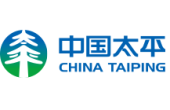
Hong Kong's yuppies, low-income groups still underinsured: report
The city has one of the highest levels of insurance awareness.
Hong Kong’s young professionals and low-income groups are still underinsured despite the city having a low awareness-ownership gap in life insurance, according to a Swiss Re report.
According to the study, Hong Kong has the lowest proportion of very high-gap households (6.6%) and has one of the highest levels of insurance awareness and ownership, with agents dominating 70% of life sales.
Hong Kong also recorded a mortality protection gap of $400b in 2019, with life insurance covering around 13.5% of mortality protection needs. In every household, it averaged that the mortality protection gap stands at $267,938.
Price is the main concern for customers, with 44% having considered buying a life policy but were put off by the view that insurance is expensive. Furthermore, six out of 10 (63%) of policyholders ended up terminating their contracts because they could no longer afford the long-term commitment. This rate spikes to 81% for the younger age group (20–29 years).
Swiss Re urges insurers to focus on younger professionals’ households as they have less financial security from non-primary property assets. Policies should have metrics such as competitive price-to-benefit ratios or premium returns, and insurers can also take advantage of the segment’s openness to digital interaction.
Insurers must also target high net worth individuals (HNWI) with products that maintain a family’s standard of living should a main breadwinner die, the reinsurer said, given Hong Kong’s high and rising cost of living.
“With confidence in their level of wealth, HNWI are likely to own less life cover, which has led to their mortality protection gap being larger than that of mid- to low-income households,” the study noted.
Life products should also come with savings or investment schemes, given the propensity of HNWI population segment to seek investment returns and return of premiums. However, with the increased cautiousness and the low interest rate environment driven by the COVID-19, customers will likely focus more on protection products, Swiss Re concluded.























 Advertise
Advertise







